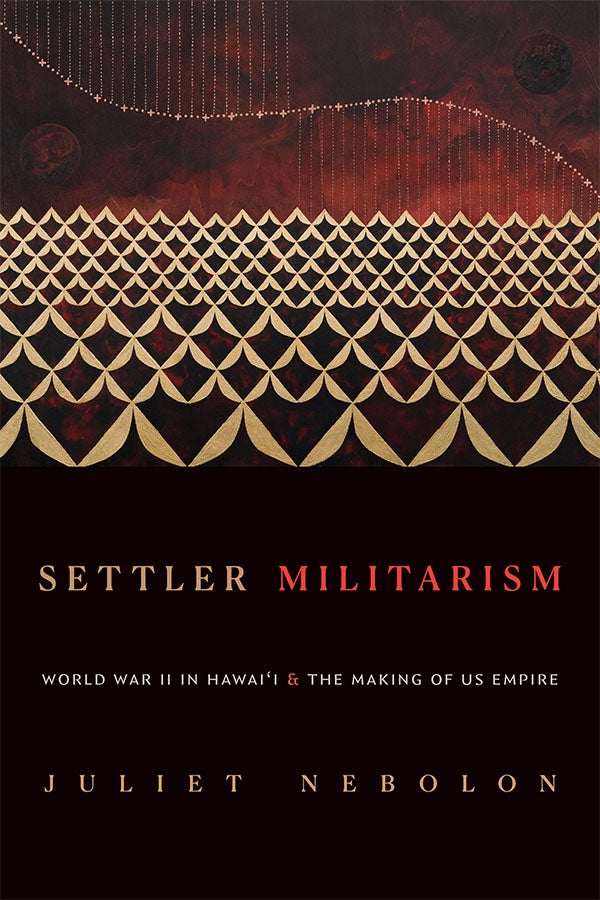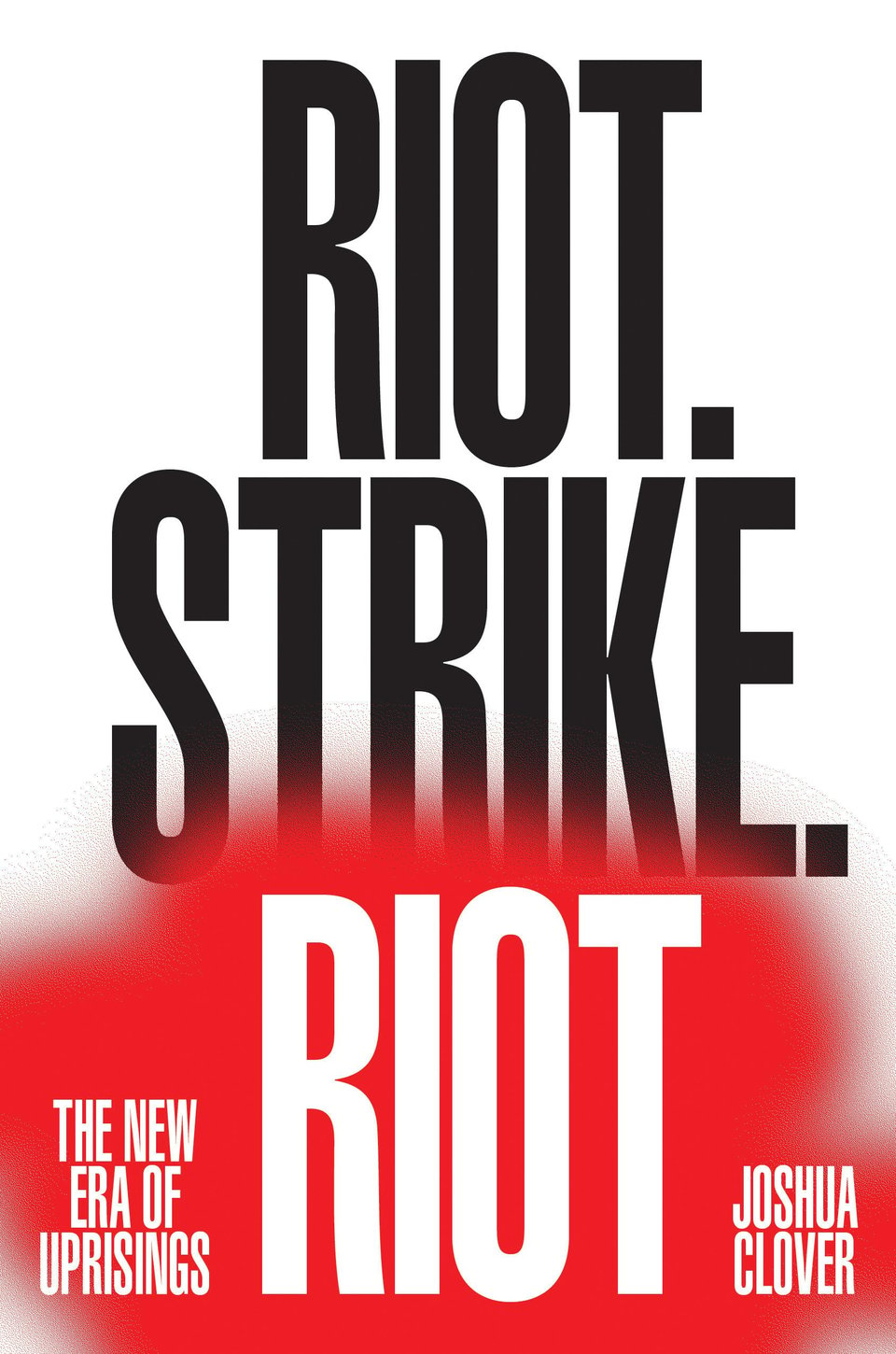Reading Group Week 18
Hello. Thanks for joining me.
We're continuing Settler Militarism: World War II in Hawai'i & The Making of US Empire by Juliet Nebolon

Readings
This week, let's read Chapter 2: "Life Given Straight from the Heart": Securing Body, Base, and Nation under Martial Law.
| Week | Date | Reading | Call |
|---|---|---|---|
| Week 1 | May 12 | Intro + Chapter 1 | May 17 |
| Week 2 | May 19 | Chapter 2 | May 24 |
| Week 3 | May 26 | Chapter 3 | May 31 |
| Week 4 | June 2 | Chapter 4 | June 7 |
| Week 5 | June 9 | Chapter 5 + Conclusion | June 14 |
Reflections
Chapter 2: "Life Given Straight from the Heart": Securing Body, Base, and Nation under Martial Law
Military policies proclaimed liberal inclusion even as they continued the classification and regulation of racially differentiated groups. Racial liberal biopower strengthened the code of gendered white patriotism as a regulatory power through regimes of health that bifurcated the population into "good subjects" who complied and un-American "others" who refused. (pg 54)
... the Honolulu Blood Bank performed three functions that illustrated Hawaii's dual position as "home front" and "war front." First, it operated as a wartime blood bank that provided for hospitals that served troops returning to the continental United States, along with residents of Hawaii. Second, it blood-typed all people in the territory by traveling to schools, businesses, and organizations to take samples, and then bringing them back to the central blood bank laboratory to process. Third, it operated as a reserve for blood plasma that was available to private doctors for nonemergency medical needs through a "lend-lease" program... (pg 59)
The blood bank's salience within the community was such that it became common practice as early as December 28, 1941, for provost courts to offer individuals sentenced with crimes the option of donating blood to the blood bank in place of a fine. For example, when Harriet Kuwamoto appeared before the court to receive her sentence for speeding, the judge fined her five dollars and revoked her license, but gave her the option of donating blood instead. (pg 61)
Wartime discourse compelled men to donate blood to showcase patriotism, whereas it enlisted women to serve as nurses and waitresses in the blood bank canteen. Asian settlers were obliged to perform evidence of their Americanization, and Japanese settlers faced additional pressure to exhibit loyalty in order to avoid military detention or internment. Finally, these biopolitical projects denied Native sovereignty and contributed to the vitality of US colonial occupation while seeking to mask structures of elimination and Hawaiian epistemologies that challenged US narratives of possession. (pg 71)
The stories in this chapter are all a little jaw-dropping and I wanted to relay more of them, but I decided to focus on just a few to juxtapose a couple of ideas that I'm kind of struggling with and processing.
I'm reeling from the descriptions of blood banks in the continental US that segregated according to the race of the donor and specifically the contrast to the Hawaiian blood bank which proclaimed this kind of racial liberalism while constructing these leaderboard-type things to fabricate a sense of patriotism that the regime then demanded nonwhite people living in Hawai'i demonstrate via blood donations.
But I'm also trying to mentally process events like the one Nebolon relays about the informal and then briefly formalized use of "blood sentences" to give people an alternative to things like fines and license suspensions. The construction of various crimes to put people in court and then the offer to let civilians get out of punishments if they donate blood (or the access to blood transfusions if the civilian recruits others to donate blood in their absence).
I can gather a very superficial sense of this, but I really wish I could read more about the metaphorical shadow that the Honolulu Blood Bank cast on Hawai'i; it seems from Nebolon's descriptions of its operation, funding, and involvement in the community like it must have been somewhat integrated into so many aspects of civilian and military life. The integration of blood in all the ways Nebolon talks about - into the carceral system, into private medical care and thus markets, and into life more broadly - is dizzying to read and think about, and hard for me to fathom living through.
In some ways this chapter describes stunningly unique phenomena, as in I can't think of other times and places where I've ever heard of some of these practices. But in other ways the stuff Nebolon is talking about here is uncomfortably recognizable today - the demands of nonwhites to demonstrate patriotism, loyalty, and assimilation as pervasive discourses, for example. But I keep coming back to the gruesomeness of the settler colonial, military regime calling upon the people being oppressed and colonized to donate pints of their own blood as alternatives to paying fines for things like speeding, being in public without an ID, etc...
I'm still processing this chapter. It was weird and upsetting in ways that kind of sank in as I was reading and reflecting on it between reading sessions.
Something I'm kind of struggling with, or rather I need to go and re-read, was the part of chapter 2 where Nebolon describes the erasure of Blackness as part of the settler colonial project and the absorption of Hawaiian indigeneity. If someone can help explain it, or talk through it with me, I would definitely appreciate it.
Share your reflections
I'd like to hear what connections you're making in reading this book. We've been having good conversations in the video chats and people are sharing good links and thoughtful contributions in the signal chat.
If you'd like to chat with me and/or the rest of the people in the Signal group chat, I'd love to see you there.
Otherwise, let's chat on Saturday at 12pm ET, during the weekly video call.
Other news
Next book
Our next book will be Riot. Strike. Riot by Joshua Clover 
If you buy the book from Open Books, the proceeds will go to Palestinians in Gaza via The Sameer Project. If you can't buy these books via the Open Books shop, please consider donating directly to The Sameer Project.
Cookbook reading group?
If you'd be interested in following along (or experiencing vicariously) a cookbook, let me know. I'm thinking about starting a concurrent "reading group" where we go through books like recipe cookbooks.
I'm open to whatever format gets people excited about the book (photos, videos, zoom potluck, idk), so if you have thoughts, let me know those too.
Support people in need
If you have extra funds, please donate directly to the Sameer Project.
Support the reading group
You can also support the reading group if you have a few dollars to spare per month. Don't worry if you can't support, but if you can, it would help.
Okay, that's everything. If you're in the signal, I'll chat with you there; otherwise, see you either on Saturday for the video chat, or next Monday.
